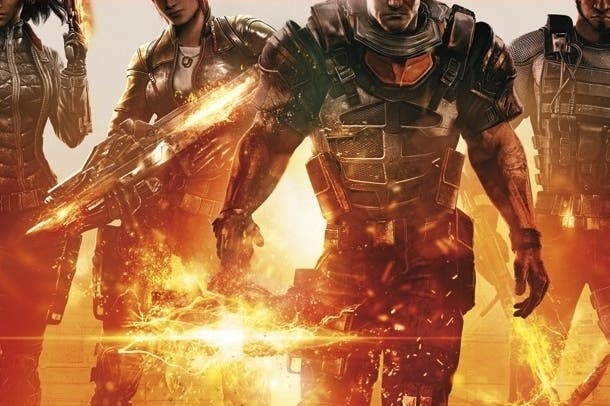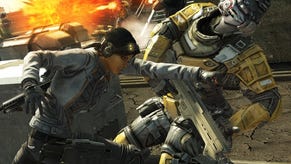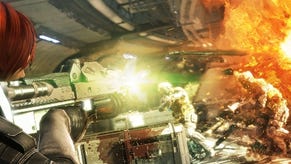Fuse review
Blown?
I wish Fuse was worse. Obviously, I'd prefer if it was better, but after playing through its six-mission story campaign and various co-op survival matches, I suspect that was never going to happen. This is a game of small ideas and low ambition, and that's rarely fertile soil for a good game.
So, instead, I found myself wishing the game could at least be genuinely bad. There's always something to say about a bad game, some story or insight that can be teased out of its missteps and mistakes. Games like Fuse, on the other hand, are simply there - inoffensive, unmemorable and devoid of purpose. The review word count yawns ahead of me, dependent on a game about which there is virtually nothing of interest to say.
The basics then, since that's all Fuse ever really musters. We're in third-person co-op shooter territory. Press a button to snap to cover. Pop out with the left trigger, shoot at the faceless bad guys with the right. Repeat until the game runs out of enemies, then trawl the area for the handful of trinkets that are inevitably hiding in the corners. Bonus XP. In-game currency. Text and audio logs. You know the drill. You've done this dozens of times before.
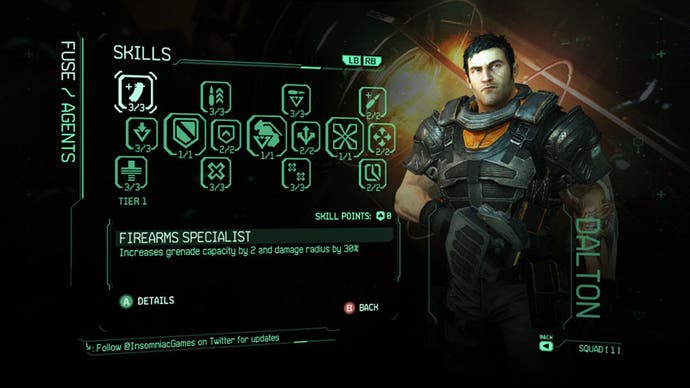
If Fuse has one point of difference, it's found in the weaponry you carry. Since the game comes from Insomniac, the studio behind the inventive arsenals of Ratchet & Clank and Resistance, you'd expect this area of the game, at least, to show a little inspiration. And it does. A little.
Early in the first level, each of the game's four main characters finds an experimental weapon powered by "Fuse", an ill-defined alien substance that provides endless energy in its natural state but becomes dangerously volatile when combined with other elements. Needless to say, the government has been investigating the second quality rather more than the first, and that's how you're able to find four weird new weapons deep in the bowels of the secret Groom Lake base.
There's a gun that encases enemies in crystals. A sniper crossbow that shoots bolts of blazing goo. A pistol that projects a shield capable of slurping up everything shot into it and firing it back out again. And there's a warp rifle that tags enemies with gravity goo and eventually turns them into miniature black holes, that can then chain into other tagged enemies. The warp rifle is basically a game breaker - a weapon so ludicrously overpowered that there's little point trying anything else.
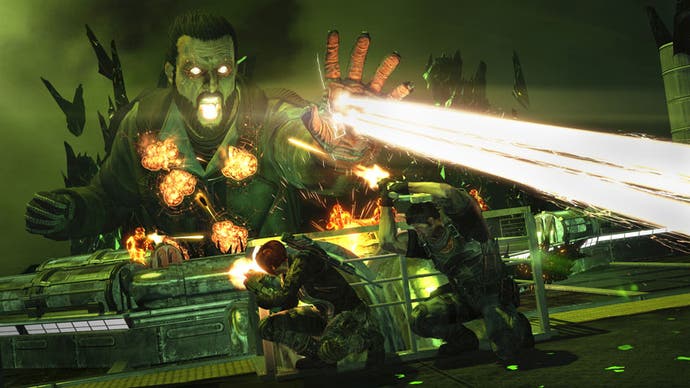
It's telling that the guns have more personality than the characters wielding them, and no surprise that the cover art ignores their faces in favour of the hardware in their hands. This is a quartet of mannequins, with faces and names but no defining characteristics. They drop action movie quips, bicker half-heartedly and struggle to seem invested when the plot's twists bring ex-lovers and estranged fathers into its feeble orbit, but five minutes after putting the joypad down you won't even remember their names.
The gunplay is decent, weighty and accurate enough to work, but sorely lacking the energy and momentum needed to stand out in a genre populated by identikit titles. Gears of War gets its fair share of stick for its bombastic presentation and adolescent gore, but at least it has a personality. Fuse feels like a template rather than a finished work, its story all black lines and white spaces waiting, in vain, to be coloured in.
What disappoints most is that the idea of Fuse, the substance, is never developed. If two players open fire on the same enemy with their "xenotech" weapons then you get a combined effect. Trouble is, that effect is almost entirely incidental to the gameplay. So you'll see pop-up icons informing you that you just killed an enemy using a combo called "Heatdeath" but it's functionally no different to the one called, say, "Fragcrush". The result is the same: one enemy, turned into orange mist.
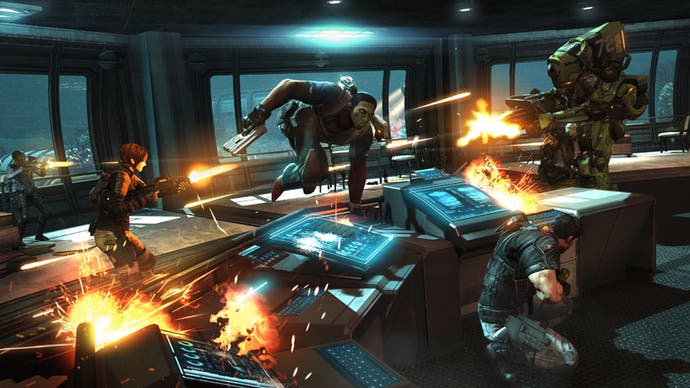
While you can spend your XP on basic upgrades - a bit more ammo here, a greater critical chance there - the skill trees fail to inspire and the core weaponry remains the same. This is perhaps Fuse's most baffling decision: to introduce four potentially interesting combat effects and then do absolutely nothing with them.
There are no situations where specific combinations are more useful than others, or where you'd need to make a tactical decision to combine your efforts. That's because the enemies are as drab and predictable as the rest of the game, an endless wash of basic grunts, guys with riot shields, guys with cloaking devices, snipers and big robots that spam you with rockets. Again, you've fought these guys in countless other games, and their use here just makes Fuse feel even more like an ambivalent shrug. That you can melt, shatter and implode them is no compensation.
Insomniac's output has had its ups and downs, but it's never been a studio that I associated with such weary mediocrity. Even its worst games had good ideas. Fuse is a game with just one idea of its own, and barely the will to execute the others it has borrowed from elsewhere.
And so it goes over six long, stodgy story missions that plod onwards, taking in an underwater prison, an Indian palace and a space station yet somehow making them all feel identical. Playing Fuse's campaign is like wading through porridge, a thick and gloopy experience that simply throws more stuff at you, and makes it hit harder, rather than finding a way of utilising its co-op mechanics and weaponry to challenge the player in unique ways.
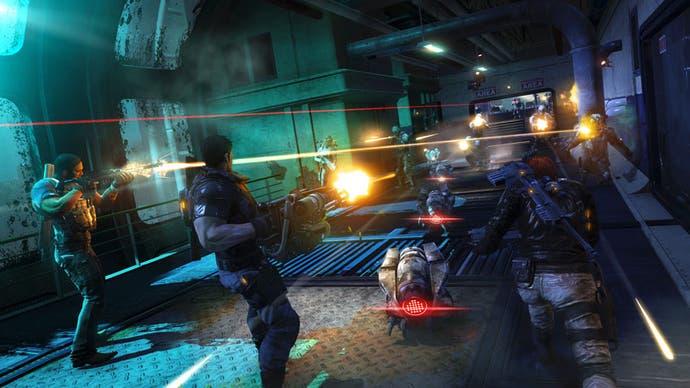
By the end, you're walking into rooms filled with snipers, followed by three attack-spamming, knockback-attacking robots, and slugging through isn't thrilling, it's just exhausting. The game's final boss battle takes this to extremes, and is one of the worst in recent memory. An elongated, checkpoint-free grind against an enemy with recharging shields and a one-hit-kill attack, it's the sort of turgid finale that should have been left in the 1990s.
That boss battle also highlights the weaknesses in the game's friendly AI. Playing solo, the AI of your companions varies wildly. In a straightforward firefight against basic foes, they'll hold their own. Ask them to cope with anything that might require smart use of cover and they prove less helpful. To make matters worse, if any character - player or AI - bleeds out then it's game over and back to the last checkpoint. In situations where the AI keeps getting itself taken down, that's a real issue.
It's also as close as Fuse gets to being truly bad. For the most part it's just OK, the sort of game you'll add to your LoveFilm rental list, forget about until it turns up, then forget again as soon as the disc is back in the postbox. It's certainly not alone in that respect, but the fact it's coming from a developer that we know can do so much better makes this exercise in average feel all the more disappointing.
